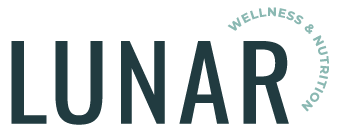Are You Getting Enough Daily Protein? A Simple Guide to Energy, Cravings & Balance
Quick Takeaways:
Most people aren’t getting enough protein, especially at breakfast.
Aim for 20–30g per meal for steady energy and fewer cravings.
Protein helps stabilize blood sugar, which supports mood and hormone balance.
Easy ways to add more: Greek yogurt, eggs, lentils, protein smoothies, nuts/seeds, lean meats.
If you’ve been feeling tired, dealing with cravings, or struggling to stay full between meals, your protein intake might be playing a bigger role than you think. Many of us aren’t getting quite enough protein each day to support our energy, mood, or blood sugar balance—especially during busy seasons of life.
The good news? You don’t need to overhaul your whole diet or follow strict food rules to make a difference. Small, intentional changes in your daily meals and snacks can help you feel more nourished, steady, and satisfied. Let’s break down why protein matters and how you can easily include more of it in your day.
Why Daily Protein Matters for Energy, Cravings, and Mood
Well, protein helps keep us feeling full and satisfied, and it helps stabilize our blood sugar. Think about it: if you have a salad with no protein, you’ll probably be hungry again in an hour. And if you’re having a high-carb meal, like pasta, without protein? That’ll likely cause a blood sugar spike, followed by a crash, leaving you hungry soon after. Protein helps balance that out, giving you a more steady release of energy throughout the day.
It is also important to note that if we don’t produce enough HCL (hydrochloric acid), then we can’t properly break down and absorb protein. We also need enough protein in our diet to help signal the release of HCL. It can be common for people that have not had enough protein in their diet over a long period of time to not make enough HCL. This is where assessing digestive function and gut health is key!
Protein is also important because it builds and repairs tissues, is beneficial for the immune system, hormone function, and enzyme activity. Amino acids make up proteins, and these are important for production of neurotransmitters like dopamine and serotonin, which are mood boosting. We need to get enough protein from our diet, because our body can’t make all of the amino acids on its own (essential vs. non-essential).
How to Know If You’re Getting Enough Protein Each Day
Around .8 grams per kg of body weight per day depending on your activity level and the amount that you find helps you feel best. This is an estimate to help you experiment and find the amount that works for YOUR body. When building our plate at each meal, we want to emphasize a large amount of veggies with a good amount of protein to balance it out and give you more energy.
Good sources: grass-fed meats, pasture-raised poultry and eggs, wild-caught fish, nuts and seeds, bone broth, and collagen peptides. I suggest researching local farmers near you, going to farmers markets, or ordering from Butcher Box or Force of Nature to prioritize good quality animal protein.
Easy Ways to Add More Protein to Your Day (Without Overthinking It)
Add: collagen to your morning coffee, a scoop of protein powder to plain yogurt, add cottage cheese to pasta sauce and blend, keep jerky and nuts around for quick snacks.


